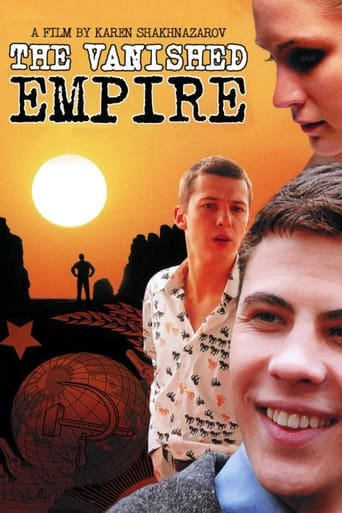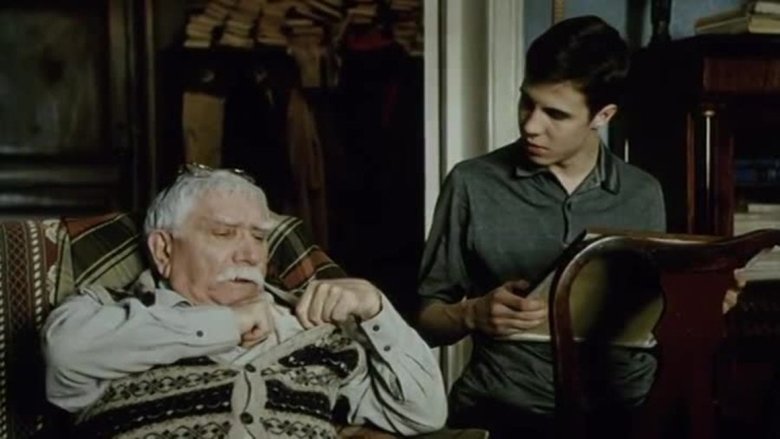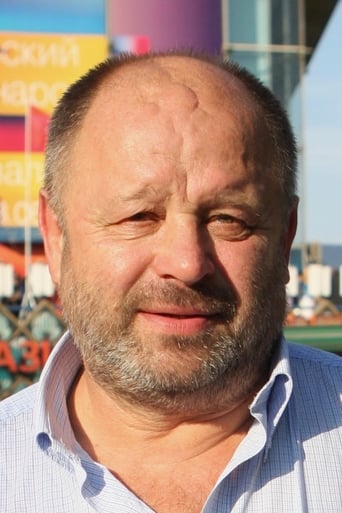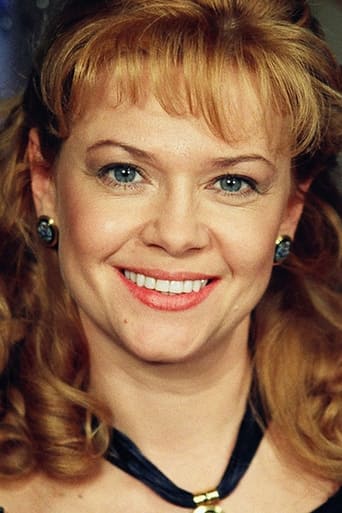Vanished Empire (2008)
This story take place in Moscow during the 1970s and unfolds around the love triangle between two young men and a girl who study at the same university. They argue, make up, and face their first disappointments and victories. While busy with personal lives and loves, they miss foreseeing that the country in which they were born and live will soon disappear from the map.
Watch Trailer
Free Trial Channels
Cast


Reviews
I like the storyline of this show,it attract me so much
one of my absolute favorites!
I gave it a 7.5 out of 10
a film so unique, intoxicating and bizarre that it not only demands another viewing, but is also forgivable as a satirical comedy where the jokes eventually take the back seat.
The story line in this film starts to wear thin after about 30-40 minutes. It takes place in the Soviet Union in the mid-70's and we get an interesting view of life there. There is a black-market, students are bored in the class-room and they listen to rock-and-roll.Unfortunately the story surrounding this is rather simple – boys are trying to meet girls with the usual results. The on-again off-again relationship between the two main protagonists became strained after the 2nd or 3rd break-up. It just becomes a little repetitive and boring. The acting is good but the story lacks any progression after the first 45 minutes.
This is the kind of film which captures the spirit of the age, which gives us an excellent cast playing characters who are all too real, in their world, over 35 years ago. Everything that one could have heard about Leonid Brezhnev's Soviet Union can be found here. Compared to today, it was an era where life was simpler, yet offered far less opportunities than the West. Despite the differences, by the end of this film, it is very easy to relate to the characters, especially Sergei Narbakov, the protagonist, and his friend, Stepan Molodtsov. Our humanity is a shared experience.The outstanding performance by the Armenian actor, Armen Dzhigarkhanyan, must not be overlooked, either. Alternating between old wisdom and very dry humor, he stands out as Sergei's grandfather. I have already recommended this film to friends who share with me an equal curiosity about the USSR, an acronym now consigned to history books.
The Vanished Empire is a beautiful film about Moscow in 1973 when its hero, Sergei Narbekov, is eighteen. Now, he and his cohorts of those days are fifty-three. Not without significance is the fact that Back to the Future is a big hit at the time. Russian kids are in love with jeans, denim, and bootlegged vinyl of the Stones and, judging by Sergei, college is a place to pick up girls you impress by your skill at wangling outlawed or hard to get stuff, including tickets for shows. Getting drunk and going dancing are also high values. Meanwhile, the USSR is full of itself, even if the kids debate whether it might not be much better elsewhere. The empire is in the ascendant but will soon begin to vanish. The film doesn't push this aspect, but hints at it metaphorically. More often it revels in the details of the period, the boastful propaganda signs, the shiny but rickety Russian cars, young hipsters performing covers of western rock and roll, cluttered apartments, people who read. This is clear-eyed nostalgia. The images are lightly tinted in yellow but razor sharp. The only nostalgia is in how well Shakhnazarov has brought everything back to life. Sergei (played by the impressive newcomer Aleksandr Lyapin) is tall and rangy, modeling his up-to-date fashions with slightly geeky panache. He has a fresh choirboy face, but also an air of cynical cockiness. The fresh face it to attract girls, not signify innocence.Sergsi's father and grandfather (Armen Dzhigarkhanyan, an Armenian like the director) were archaeologists. His father's missing, his grandfather (who knew Agatha Christie) is amiably tired of life at home, and indulgent toward the boy -- who steals his books and sells them to buy stuff and get drunk with his best mates Stepan (Yegor Baranovsky) and Kostya (Ivan Kupreyenko). It's essential to understand this film to recognize it's about sowing your wild oats. Decades later the grudges of this moment and its misbehavior won't matter one bit. And due to the resilience of youth, they hardly even matter now.But Sergei's definitely a bad boy, neglecting his studies and, time and again, at key moments in fact, getting drink or stoned and standing up his new girlfriend Lyuda (Lidiya Milyuzina), whose respectable mother he's impressed with is intellectual background. He wants her and loves her but he wants to have fun more. He's unmotivated. When his mother dies of stomach cancer he goes on a trip, a kind of expiation, suggested by his grandfather, to the vast empty site of the ancient City of the Wind, sole remnant of the lost Khorezm civilization his grandfather discovered.That evocative moment ends the vision of 1973 and there quickly follows a short perspective-establishing coda in the Moscow airport today, where the now much older Sergei, whom we don't see, is recognized and approached by Stopya (Stepan), the friend he rejected in a fight over Ludya. Sergei's a translator now. The grudge is forgotten. All that means nothing now.There's a parallel, but never at all pushed, of the lost civilization of the East and the lost Soviet empire. The film, handsome to look at, with a vivid look, is superb as to period mise-en-scene, period (and not just of his own youth) being a penchant of Shakhnazarov, whose position as head of Mosfilm has helped him get funding for such productions. The evocations give a sense of the USSR's high point of self-importance but also of how it was stunted. Now everything is gone, changed, and feels "evil," Stopya says in the airport. Shakhnazarov doesn't have to spell out the differences; the contrast is beautifully sketched in.In retrospect there's a feeling conveyed that the reason Sergei wasn't a good boy is that he saw through the Soviet dream. The Vanished Empire, with its subtly overlapping sense of parallels between lost youth, far off civilization, and crumbled USSR, succeeds in both making eighteen and 1973 clear and vivid and showing that they're gone forever -- that in reliving them for us Sergei is an archaeologist, just like his father and grandfather, after all.
I am Portuguese so, despite being born in the 80', i know a few things about a country trying to overcome its own memory. For those who don't know, Portugal was the late perpetrator in Europe of a fascist concept of "empire", a retro idea that stuck cultural life and true evolution for decades in some countries. It finished for us in the mid 70', but dealing with such a radical change of collective definition is something that drags to these days, watered by an upgrade in the Portuguese general living conditions, but still there.Now i think the Soviet experiment was probably more radical and fundamentalist to its populations than the Latin European fascisms. And it lasted longer. So, dealing with the radical shift towards a forced "western democracy" approach is probably a painful process for the ex soviet territories, mostly the russians. That's the frame where i place this specific picture. I watched it as an exorcism of past phantoms, but also a blinking melancholic eye to those days.The facts in the story, which is casual (it is here as a 'typical' repetitive case, in those days) all speak against what was happening in that regime in that context, but yet it avoids moralizing. No one is judged (unlike, for example, in "The lives of the others") and no one is innocent. It's a kind of approach that assumes that we must feel what was going on regardless of the upper political or power contexts that forged what we see. I accept that vision, i enjoyed it. The cinematic options here were fully coherent to what we saw, and from time to time i saw Tarkovsky here, who has much to do with how cinema bends memory. Nice to remember a social context, a certain youth i never got to know, and a certain kind of cinema that is sweet and sometimes (not this case) deep and life-altering.My opinion: 3/5 FantasPorto http://www.7eyes.wordpress.com








